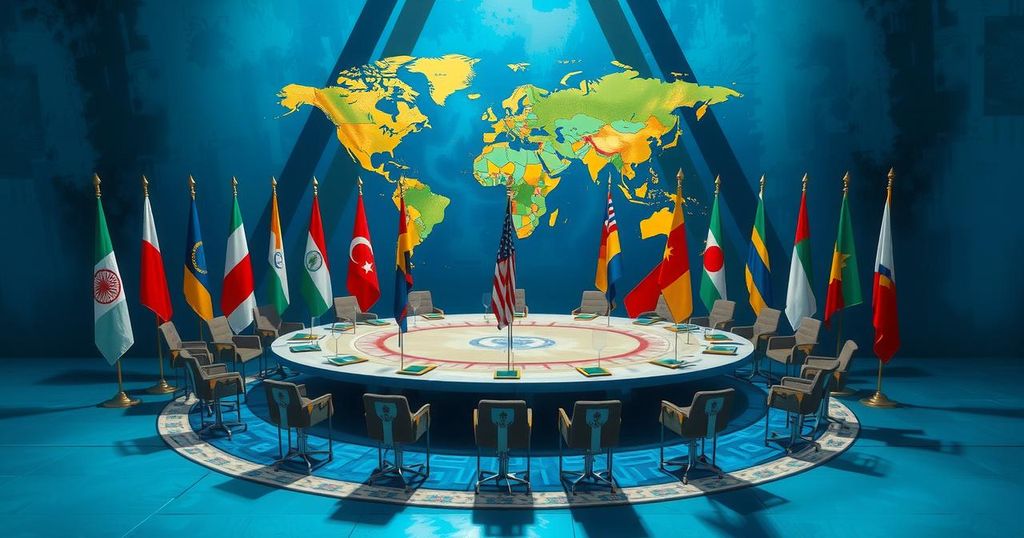Kenya is facing accusations of supporting the RSF militia following a visit from its leader, Hemedti. This has led to Sudan recalling its ambassador and labeling Kenya a “rogue state”. The RSF is involved in a devastating civil war in Sudan, with Kenya’s actions criticized by multiple international bodies. Furthermore, Kenya’s human rights record raises significant concerns about its adherence to international law, contributing to its growing isolation.
Kenya’s Vice President Kithure Kindiki’s recent welcoming of Mohamed Hamdan “Hemedti” Dagalo, leader of the Rapid Support Forces (RSF) militia at Nairobi’s Jomo Kenyatta International Airport, has led to diplomatic tensions. The United Nations has condemned the RSF for severe human rights abuses in Sudan. Consequently, Sudan criticized Kenya’s actions, labeling them as “irresponsible.” In response, Sudan recalled its ambassador from Kenya, classifying the country as a “rogue state” that flouts international norms.
The RSF has been engaged in a brutal civil war against the Sudanese army since April 2023, leading to thousands of deaths and displacing over 12.5 million individuals. The United States and U.N. have imposed sanctions on both the RSF and the Sudanese military for their roles in these offenses. In February 2024, Kenya hosted RSF representatives to formalize a charter for a potential parallel government in Sudan, an act criticized by international stakeholders for threatening Sudan’s stability.
Despite these accusations, Kenya maintains it has not taken sides with the RSF and emphasizes its status as a peace facilitator. A government statement asserted Kenya’s dedication to addressing the humanitarian crisis, claiming to remain neutral in the ongoing conflict despite growing suspicions about its role.
International reactions have been critical, particularly from the U.S. State Department, which is concerned that the RSF’s new governance undermines Sudanese peace. The U.N. Security Council also voiced its discontent, urging nations to prevent any actions that could worsen the conflict, which cumulatively impacts Kenya’s international standings negatively.
Kenya’s involvement in regional conflicts has historically included hosting various controversial groups, such as the M23 rebel faction from the Democratic Republic of the Congo (DRC). Following this, the DRC vehemently opposed Kenya, recalling its ambassador and expelling Kenyan soldiers. Furthermore, actions by President Félix Tshisekedi of the DRC, which included boycotting a summit led by President William Ruto, reflect Kenya’s strained regional relations.
Human rights groups claim that Kenya is violating global human rights standards by abducting political opposition leaders and sending them to authoritarian regimes. Instances such as the detainment of Ugandan opposition leader Kizza Besigye and the repatriation of asylum-seekers to Turkey highlight serious human rights concerns regarding Kenya’s treatment of opposition figures and refugees.
In conclusion, Kenya, once viewed as a diplomatic leader in regional issues, faces increased scrutiny over its alleged biased involvement in conflicts such as those in Sudan and the DRC. This shift, along with its troubled human rights record, suggests that Kenya may be distancing itself from recognized international standards, leading analysts to characterize it as increasingly isolated and potentially a rogue state.
In summary, Kenya’s recent diplomatic choices, particularly its dealings with the RSF and the M23 group, have raised serious concerns about its commitment to neutrality in regional conflicts. Coupled with its problematic human rights record, these factors contribute to a perception that Kenya is increasingly at odds with international norms. As a result, its status in the international community is rapidly declining, signaling a shift from its previous role as a mediator to a more controversial position.
Original Source: www.voanews.com






